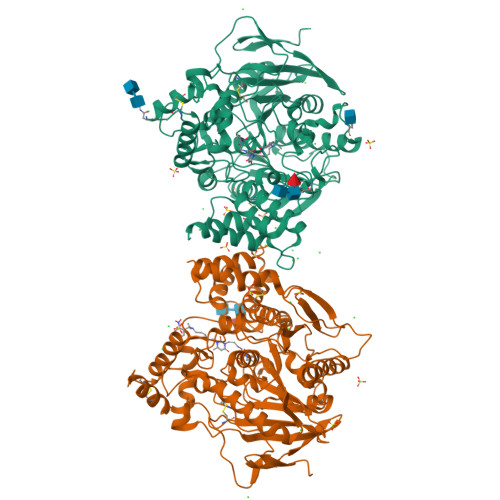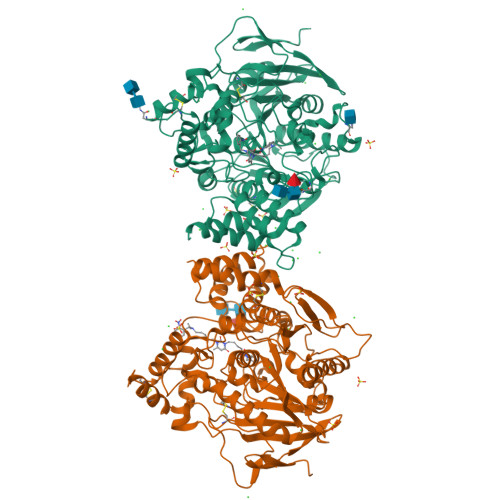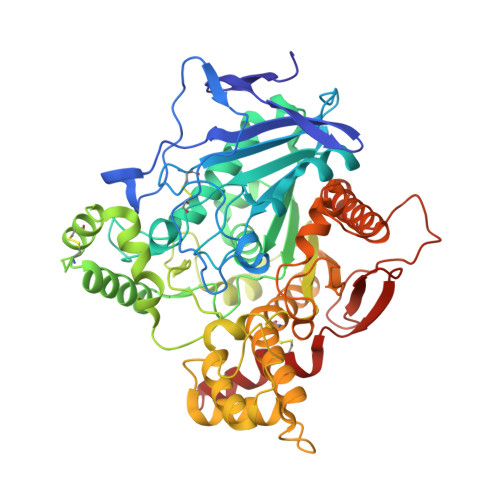New evidence for dual binding site inhibitors of acetylcholinesterase as improved drugs for treatment of Alzheimer's disease.
Zueva, I., Dias, J., Lushchekina, S., Semenov, V., Mukhamedyarov, M., Pashirova, T., Babaev, V., Nachon, F., Petrova, N., Nurullin, L., Zakharova, L., Ilyin, V., Masson, P., Petrov, K.(2019) Neuropharmacology 155: 131-141
- PubMed: 31132435
- DOI: https://doi.org/10.1016/j.neuropharm.2019.05.025
- Primary Citation of Related Structures:
6F25 - PubMed Abstract:
Profound synaptic dysfunction contributes to early loss of short-term memory in Alzheimer's disease. This study was set up to analyze possible neuroprotective effects of two dual binding site inhibitors of acetylcholinesterase (AChE), a new 6-methyluracil derivative, C-35, and the clinically used inhibitor donepezil. Crystal structure of the complex between human AChE and C-35 revealed tight contacts of ligand along the enzyme active site gorge. Molecular dynamics simulations indicated that the external flexible part of the ligand establishes multiple transient interactions with the enzyme peripheral anionic site. Thus, C-35 is a dual binding site inhibitor of AChE. In transgenic mice, expressing a chimeric mouse/human amyloid precursor protein and a human presenilin-1 mutant, C-35 (5 mg/kg, i.p) and donepezil (0.75 mg/kg, i.p) partially reversed synapse loss, decreased the number of amyloid plaques, and restored learning and memory. To separate temporal symptomatic therapeutic effects, associated with the increased lifetime of acetylcholine in the brain, from possible disease-modifying effect, an experimental protocol based on drug withdrawal from therapy was performed. When administration of C-35 and donepezil was terminated three weeks after the trial started, animals that were receiving C-35 showed a much better ability to learn than those who received vehicle or donepezil. Our results provide additional evidence that dual binding site inhibitors of AChE have Alzheimer's disease-modifying action.
Organizational Affiliation:
Arbuzov Institute of Organic and Physical Chemistry, FRC Kazan Scientific Center of RAS, Arbuzov str. 8, Kazan, 420088, Russia.






















